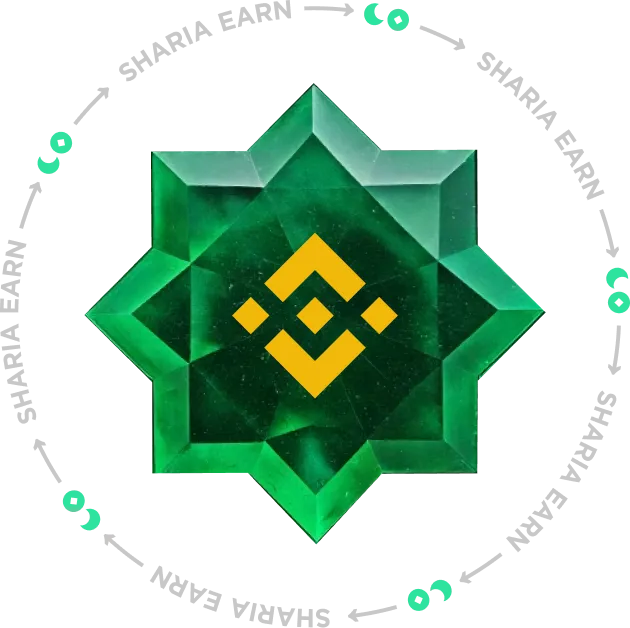Faith, finance and Binance – Humza Khan's ethical vision
'For many, this was the first time they could earn in crypto without questioning whether it was halal'

Billions of people are still locked out of modern finance – not because they lack interest, but because the system wasn’t built for them. For Muslim investors, faith-based rules have long made crypto a gray area. Binance’s Humza Khan wants to change that, starting with a staking platform approved by leading Islamic finance scholars.
Khan, a robotics engineer by training, was drawn to technology that could make everyday life better – and began to question how progress fits within the framework of faith.
Speaking from Karachi, Pakistan, he told The Crypto Radio that his background taught him to design systems that serve people – a mindset that later shaped his approach to digital finance.
That curiosity soon led him to Bitcoin. “After graduating, everyone kept talking about Bitcoin, cryptos, this and that,” he said. “It wasn’t just about investing, but the curiosity that led to building something in this space.”
Now, as Binance’s Head of Business Development for the Middle East and North Africa, Khan is focused on a question few were addressing: how to make crypto compatible with Islamic finance.
Faith and finance on parallel tracks
The Islamic finance industry has grown by more than 300% in just 15 years, according to reports from the Islamic Financial Services Board and Refinitiv, mirroring crypto’s rapid rise over the same period.
Today, the sector is valued at more than $4 trillion globally, spanning banking, insurance, and asset management. Its core principles – ethical profit, shared risk, and prohibition of interest – closely mirror crypto’s own ideals of transparency and decentralization.
Yet for many Muslim investors, the overlap between the two worlds has been limited. Islamic scholars have long debated whether cryptocurrencies are permissible, creating uncertainty for millions of potential users.
“A lot of Muslim investors chose to refrain from trading,” said Khan, “because the community prefers investing in something inherently good.”
This hesitation inspired him and his team to design a product that could meet those concerns head-on – one that didn’t ask investors to choose between faith and innovation.
The Sharia-compliant solution
That solution came in the form of Binance’s Sharia Earn product, developed in collaboration with Amani Advisors, one of the world’s most respected Islamic finance consultancies.
“We spent six to twelve months working with Amani Advisors, who are some of the best global advisors for Islamic finance,” Khan said. “The goal was to create a product that avoids prohibited practices and actively aligns with Islamic financial principles.”
Malaysia-based Amani Advisors has certified products for major Islamic banks and fintech startups around the world, giving Binance’s platform the same level of scrutiny as traditional Islamic financial instruments.
Binance’s Sharia Earn model eliminates key concerns such as riba (interest) and gharar (financial uncertainty). In simple terms, staking allows users to earn rewards by supporting a cryptocurrency network. Here, returns are based on participation rather than interest-bearing activity – keeping the process fully compliant with Islamic guidelines.
So far, the response has been strong. More than 92% of early users supported the product, praising its accessibility and ethical foundation. Many were traders and small business owners from Indonesia, Pakistan, and the Gulf who had previously avoided staking due to religious uncertainty.
Khan described the feedback as “incredibly motivating,” noting that for many, this was the first time they could earn on crypto without questioning whether it was halal.

Expanding access and understanding
For Khan, Sharia Earn is only the beginning. His team is already exploring tokenized real-world assets such as real estate and Sukuk – Islamic financial instruments similar to bonds – as the next step toward a wider Sharia-compliant ecosystem.
“Now we just need to convince these governments that this benefits them too,” he said. “If public policy starts to see Sharia-compliant blockchain as a growth tool, we’ll unlock a much bigger ecosystem.”
To support adoption, Binance has focused on accessibility. The platform already supports multiple languages, including Arabic, Russian, Kazakh, and Indonesian, with more to come.
Muslim populations make up about 70% of residents across regions including the Middle East, North Africa, South Asia, and parts of Central Europe – a vast market that remains largely untapped by traditional crypto platforms.
A bridge between belief and technology
“Most regulators and governments are now trying to get a stronger grip on the subject before they make their decisions,” Khan said. “That’s why education is so important.”
By aligning modern financial tools with centuries-old values, Binance hopes to build lasting trust within Muslim communities – and set a precedent for more ethical crypto products globally.
“This is not just for Muslim investors – it’s for the wider, ethical-focused investing community,” he said. “Please do try the product. Let us know what you think.”
“Everyone deserves a fair way to engage with innovation.”



